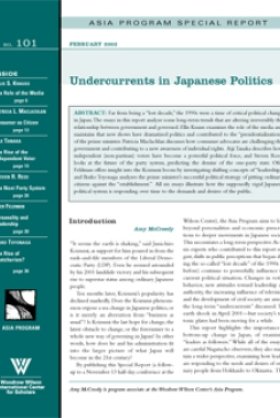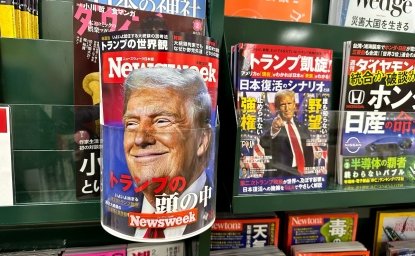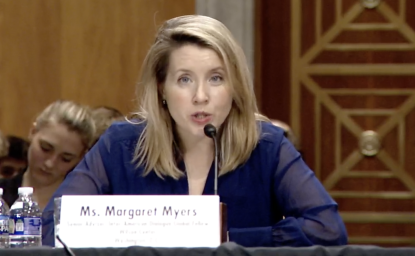Undercurrents in Japanese Politics


Far from being a “lost decade,” the 1990s were a time of critical political change in Japan.The essays in this report analyze some long-term trends that are altering irreversibly the relationship between government and governed. Ellis Krauss examines the role of the media and maintains that new shows have dramatized politics and contributed to the “presidentialization” of the prime minister. Patricia Maclachlan discusses how consumer advocates are challenging the government and contributing to a new awareness of individual rights. Aiji Tanaka describes how independent (non-partisan) voters have become a powerful political force, and Steven Reed looks at the future of the party system, predicting the demise of the one-party state. Ofer Feldman offers insight into the Koizumi boom by investigating shifting concepts of “leadership,” and Ikuko Toyonaga analyzes the prime minister’s successful political strategy of pitting ordinary citizens against the “establishment.” All six essays illustrate how the supposedly rigid Japanese political system is responding over time to the demands and desires of the public.

Indo-Pacific Program
The Indo-Pacific Program promotes policy debate and intellectual discussions on US interests in the Asia-Pacific as well as political, economic, security, and social issues relating to the world’s most populous and economically dynamic region. Read more

Explore More
Browse Insights & Analysis
Myanmar’s Junta and the 2026 Elections: A Fig Leaf for Legitimacy?

Climate Change, Peace and Security: Discourse Versus Action in Asia

